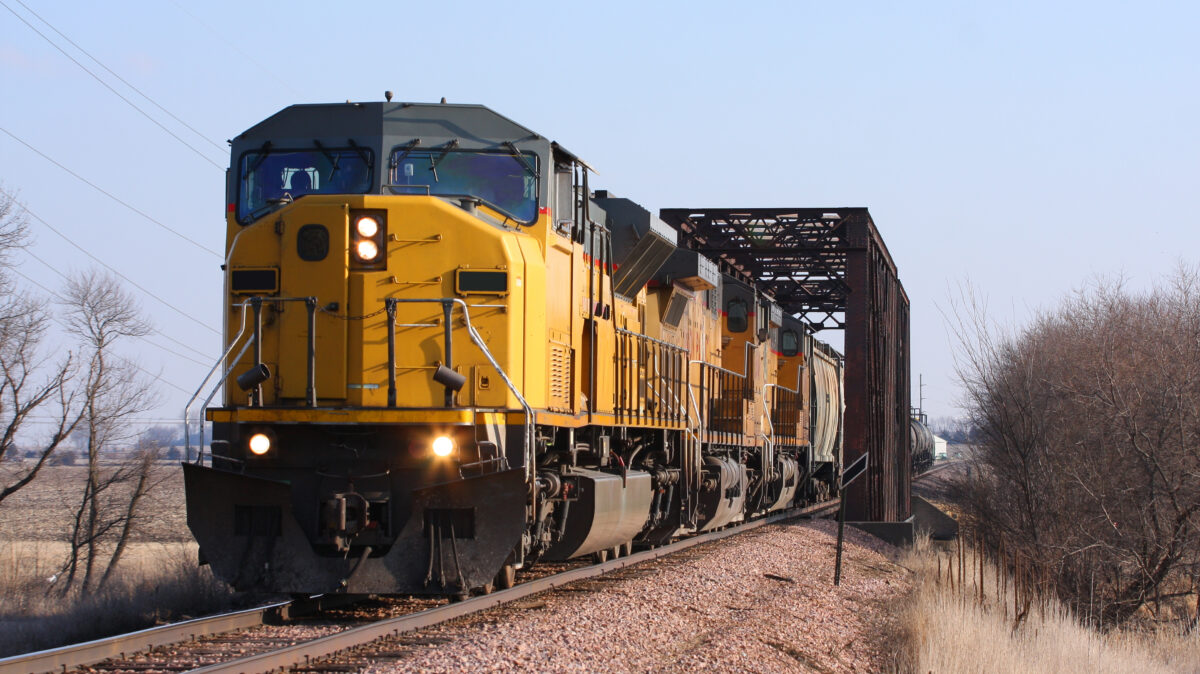Impending Deadline Could Stop Rail Shipments in Their Tracks
Guest Author
Special Contributor to FB.org

photo credit: Getty
Guest Author
Special Contributor to FB.org
Spring planting may seem quite far off, but farmers are already looking ahead with a wary eye on something that may derail all their plans--a nationwide railroad shutdown. Unable to comply with the looming Dec. 31 deadline for implementing positive train control, railroads are warning customers that they might stop rolling altogether--and soon, unless Congress gives them more time.
Positive train control is a GPS-based train control system designed to prevent collisions and over-speed derailments. Under the Rail Safety Improvement Act of 2008, railroads are required to implement PTC systems by the end of this year on mainline tracks that carry "toxic by inhalation" materials like anhydrous ammonia--a key fertilizer ingredient--as well as passenger traffic.
BNSF, Union Pacific and other large rail carriers say they've been working on PTC since the mandate was put in place in 2008, but it's a very large, complex system made up of multiple independent technologies, many of which didn't exist seven years ago.
According to information from the Federal Railroad Administration and the railroads themselves, no Class I freight railroad will be in compliance with PTC requirements by the end of the year. At least one railroad--BNSF--has said if Congress doesn't extend the deadline, it plans on stopping all traffic on lines that are required to have PTC installed, and they won't wait until the end of the year to do so.
To ensure there are no TIH shipments on their systems as of Jan. 1, 2016, many railroads plan on issuing TIH notices prior to Thanksgiving. Faced with the likelihood of fewer rail shipments in the last quarter of this year and potentially no shipments in early 2016, fertilizer manufacturers, who work around the clock to ensure an adequate supply for on-time planting, will probably cut way back on production, according to the Fertilizer Institute. And even if--and that's a very big "if" --fertilizer manufacturers don't slow down, fewer shipments in late 2015 will be a big problem for spring planting in 2016 because rail shipments of fertilizer are distributed equally across the year to meet demand.
The American Farm Bureau Federation and other organizations, including the U.S. Chamber of Commerce and the National Retail Federation, highlighted the catastrophic consequences that would follow a shutdown of large segments of the nation's freight rail network, in a letter to Transportation Secretary Anthony Foxx. From farm inputs and goods to coal, automobiles, retail consumer goods and chemicals like those used to purify water for drinking, a major service disruption would have cascading impacts on the nation's food, energy and water supplies, as well as transportation, construction and nearly every sector of the U.S. economy.
As compliance with the PTC mandate is simply not achievable, the groups are urging Congress to act by Oct. 31 to extend the deadline to allow railroads enough time to put the system in place. In its multiyear highway bill, the Senate has given the railroads another three years to meet the PTC deadline, but the House has yet to act on its version of the bill.
Unless Congress acts it's not only rail shipments that will be grinding to a halt; farmers, ranchers and the rural communities and national economy they support will also be well off track.
Top Issues
VIEW ALL